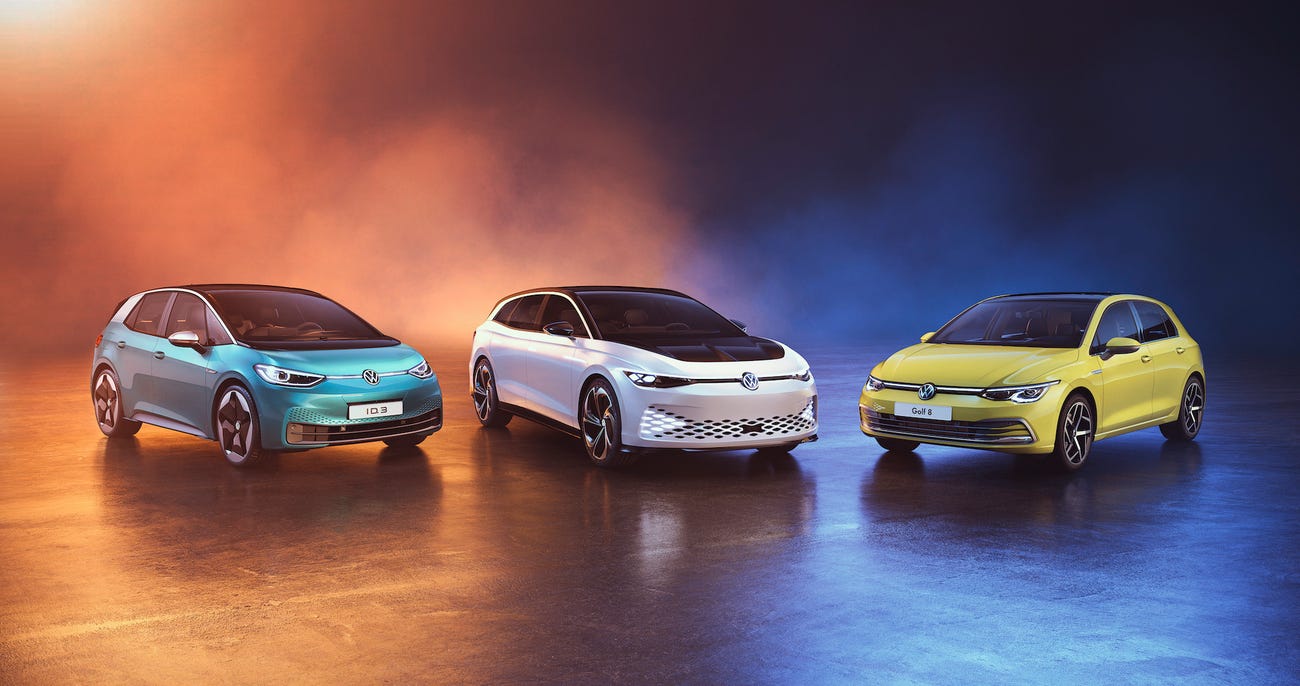Read The Full Article On: Businessinsider
Tesla famously uses a direct sales model, one that cuts out the dealership middleman and therefore all the haggling and negotiating that usually comes with buying a car.
Volkswagen just rolled out a new sales model that’s a sort of hybrid between a direct sales model like Tesla and a traditional dealer model.
The automaker announced on May 20 that the new model will apply to sales of the all-electric ID family, starting with the ID.3 compact car, which is not sold here in the US.
Customers interested in purchasing an electric car from Volkswagen will be able to do so directly online from the automaker. Volkswagen sets the price of the car, thus eliminating the need for the dealer and customer negotiating a price between themselves.
Volkswagen will also be in charge of financing and be on the hook for returns and residual value risk.
“The dealer no longer has to finance vehicles in advance. We also bear inventory cost and the costs associated with showroom vehicles,” Volkswagen’s head of sales and marketing in Germany, Holger B. Santel, said.
Dealers, in turn, become the agents the private customers and small commercial business can buy their cars from. They’ll handle test drives, car handover, acquisition, sales consultation, and transaction processes.
Customers can choose their preferred dealer for further care and local services. The dealer selected by the customer at the start of the whole process gets the same commission and bonus as they would normally, even if the car was bought online and directly from Volkswagen. This way, Volkswagen reasons, dealers can rely on compensation regardless of where the car was purchased.
For now, the new sales model will only affect European dealerships.
While the ID.3 won’t be sold in the US, the upcoming ID.4 SUV will be. It will mark Volkswagen’s first all-electric car sold here.
A Volkswagen spokesperson declined to comment on the ID.4’s sales plan and instead said that more details will be offered closer to the car’s official debut.
Volkswagen first announced plans for the new sales model in 2018. It represents a “sweeping, 500-page rewrite” of the automaker’s agreement with its massive European dealer network and will change the way Volkswagen retailers profit and interact with buyers and the factory, Automotive News wrote at the time.
Furthermore, the outlet went on, electric cars typically don’t require as much maintenance as regular cars. For dealers that mostly earn money through their service centers, this poses a risk for profit loss. And given Europe’s aggressive shift toward low-emissions driving, new cars will likely trend more toward battery-powered ones.
Volkswagen said 100% of its European retail partners agreed to the new system.
“The current system has essentially been in place ever since General Motors first created it in 1915,” Matti Porho, who owns a group of VW dealerships in northern Finland, told Automotive News Europe.
It’s unclear what a new sales model will look like in the US.
For US buyers, going to a car dealer isn’t exactly an overwhelmingly positive experience. Showroom inventory sometimes doesn’t have the exact car in the exact trim people want. Customers don’t want salespeople anymore; they want product specialists. And many buyers say they prefer the entire car-shopping experience — from financing, price negotiation, paperwork, and home delivery — to happen online.

